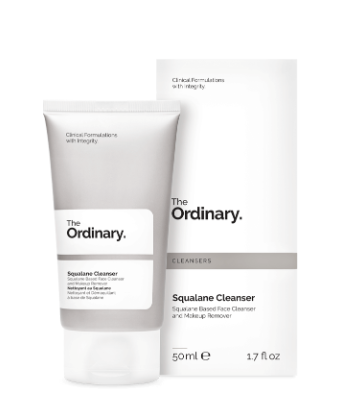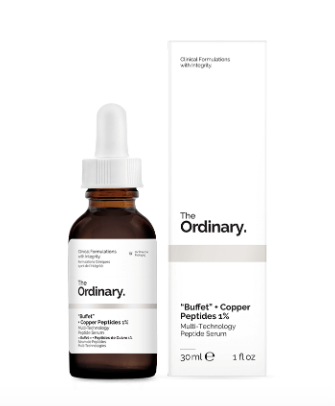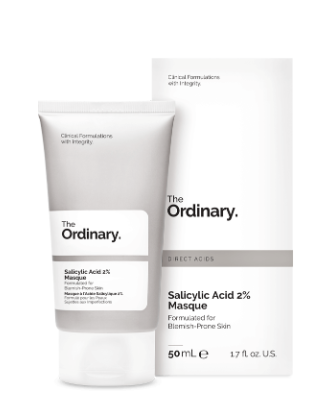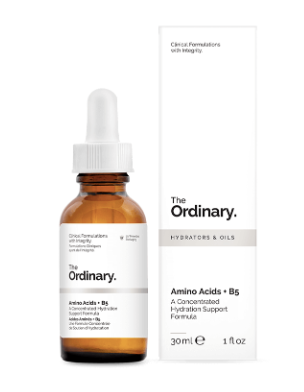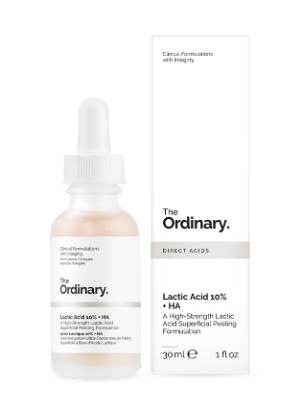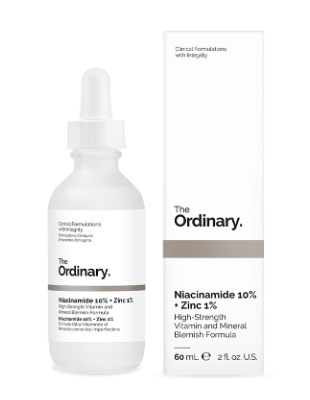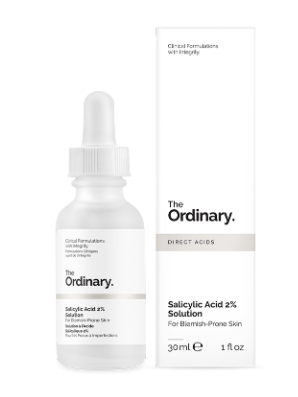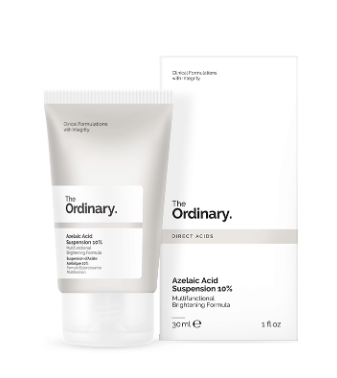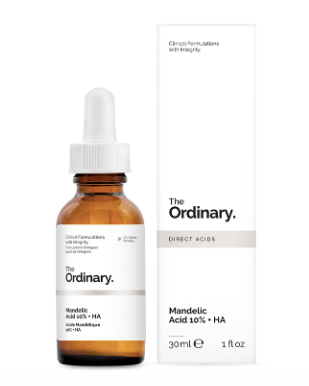The word 'game-changer' is thrown around a lot in the beauty industry, especially when it comes to skincare. But it's fair to say that nothing has shaken things up quite like The Ordinary.
Brainchild of Nicola Kilner and the late Brandon Truaxe, the skincare brand was born in 2016 under the Deciem umbrella (which also looks after Niod, Hylamide and The Chemistry Brand). Deciem began as an under-the-radar startup operating in a small garage in Nottingham before it really blew up. Nowadays, you'll find its shiny new headquarters (the rustic-chic design and decor chosen by Brandon himself) in Toronto, with an employee count of over 900.
AdvertisementADVERTISEMENT
Whether you're a skincare obsessive or not, you'd be hard-pressed to find someone who hasn't heard of The Ordinary, or a beauty editor or dermatologist who doesn't extol the virtues of each product (the retinol and acids are particularly popular among experts). According to Nicola, it's simply because the brand is common sense. "These ingredients have been around forever," Nicola told R29. "Customers know, love and trust them and we sell them at the price they should be sold at. Take vitamin C for example. It isn’t a new ingredient and so it shouldn’t be charged at £60. If you have a headache and you buy paracetamol, it'll cost you 30p. You would never see someone selling it for £100, but that commodity approach has never existed in skincare." Until now, that is. "The Ordinary is about trying to change people’s perceptions," added Nicola.
On Instagram alone, Deciem has close to 1m followers. Thanks to its no-frills philosophy, smart website and in-touch social channels, it has managed to create a community of people invested in effective, expert-led skincare that won't break the bank – and that's what makes it stand out. Individuals swap reviews, advice and discuss their skincare gripes, while the team is always on hand to educate people via email, Instagram comments and stories, or the reviews section on the website.
This is all the more relevant seeing as large numbers of individuals who shop The Ordinary do so out of frustration towards skin concerns such as acne (which Nicola says has the highest search on site), rosacea, pigmentation and dryness, among others. As well as some shiny new launches (which we'll bring you exclusives on in the near future), the brand is working on a regimen builder to help people tackle skin concerns. Shoppers will be able to fill in their skin's details and receive a skincare routine recommendation tailored to their needs. In the meantime, here's everything we learned about how to achieve great skin in the 48 hours we spent with the experts behind the brand.
AdvertisementADVERTISEMENT
"Mindful skincare" is the trend to watch in 2020
Skip-care and minimal skincare routines are taking centre stage, as we're looking at a smarter, more mindful approach to products. "Nowadays, we don’t just want good skin for the weekend with quick fixes like acids or masks. Instead, we want good skin going forward into the future," said Nicola. The steps to nailing a mindful skincare routine are simple. "Getting some expert advice is one key thing," says Nicola, but if you don't have access to a dermatologist, there are online resources which might help. "This is what we pride ourselves on at Deciem, whether it's the web service chat, or emailing customer services. We spend a lot of time training our team so they can really advise you on what to use, but more importantly, what not to use. Not every ingredient works for all skin and it's important to remember that not all ingredients work together, either."
Nicola suggests that just three or four products is ample in a good skincare routine, and that many of us might be overdoing it. "There are different things you want or need, so you can always bring other products in on different days. Less is more so that skincare is multi-targeted." Prudvi Kaka, chief scientific officer at Deciem suggests beginners would do well with the Squalane Cleanser, £5.50, Salicylic 2% Masque, £9.90, and "Buffet" + Copper Peptides 1%, £28.90 – a routine he follows, too.
AdvertisementADVERTISEMENT
Inflammation is where most skincare issues stem from – here's how to stop it
"Brandon used to say that inflammation is the number one cause of skin ageing and it’s interesting to discover just how many skin issues are linked to it," said Nicola. "Take sun damage for example. It’s the inflammation as a result of the sun that leads to changes in the skin," such as lines and pigmentation. That said, we're becoming more aware of the need to wear SPF daily, and the brand is soon launching all-new sunscreen products to appeal to a wider audience: The Ordinary "Invisible" UV Filters SPF 30 and "Mixed" UV Filters SPF 50. "I would recommend 30, as the difference between factor 30 and 50 is only a small percentage," said Prudvi. "Plus, the texture is lighter. Our sunscreens are chemical sunscreens but they are encapsulated, so they sit on the skin and don't absorb into the skin. Apply SPF 20 mins before sun exposure, and if you're really dedicated, every two hours after that."
Skincare acids such as salicylic, glycolic and lactic acid are also incredibly popular at the moment, but Nicola believes that overusing them can potentially cause unwanted inflammation in the skin. "Acids should be used in a regime in a minimalist way," said Nicola. "If someone is using an acid every day they will over-strip their skin." Dermatologists recommend incorporating an acid serum or liquid exfoliator into your evening routine two or three times a week. Following with moisturiser is optional, depending on your skin type. Always wear SPF during the day, as acids make skin sensitive to sunlight.
AdvertisementADVERTISEMENT
These three skincare ingredients are going to be huge
According to the brand, the bestselling product from Deciem is The Ordinary's Niacinamide 10% + Zinc 1%, £8.90. Otherwise known as vitamin B3, niacinamide has the ability to minimise blemishes on the skin, including clogged pores which can lead to spots. While Nicola and the team have extolled the virtues of niacinamide for years, it's only starting to gain traction among skincare lovers and for good reason. A little gentler than acids or retinol, it makes a great addition to an acne skincare routine.
Prudvi also pinpoints amino acids as star ingredients. They are still relatively under the radar in skincare but have so many benefits, especially for dry and even spot-prone skin. "Amino acids can do multiple things, such as increase the skin’s potential to improve hydration," said Prudvi. They exfoliate, too. "I think everyone needs a product like that to revitalise skin." Try a serum such as the Amino Acids + B5, £5.90, as part of a nighttime routine. "It can be applied AM and PM, but it’ll be more beneficial when left on the skin, just after cleansing," added Prudvi. "If you have really dry skin, I'd suggest applying this first and then following with a cream. If you're adding it into your routine as a small benefit, you can use it alone."
AdvertisementADVERTISEMENT
Skincare ingredient ectoin doesn't feature in any Deciem products just yet, but Prudvi suggests it's one to look out for in 2020, especially if your skin is on the dry side. Studies suggest it works as an emollient, which softens the skin by sitting on the surface and preventing water from escaping.
This much-hyped skincare staple isn't actually doing much
Regardless of its popularity in skincare, Nicola doesn't rate CBD as a beneficial ingredient. "I don't understand the hype around it," she told R29. "Topically, there is no significant benefit. There are thousands of ingredients which do so much more." Nicola notes that ingesting CBD may yield better results, but in skincare not so much. "Any other skincare is much more effective than CBD," she says.
An ingredient she swears by daily is copper, found in the "Buffet" + Copper Peptides 1%, £28.90. "It’s one of those products that has everything in it and it's something I won’t leave the house without applying first. There’s so many different peptides in there, and they are really focused on long-term skin health." That said, this product is likely to have a different effect on every skin type, because it’s about what your skin really needs, according to Nicola. "A study on copper peptides was done on wound healing recently," Nicola continued. "I find that if I have a shaving cut or something and I apply copper peptides, it heals so much faster. It’s that one special ingredient that just makes your skin work better."
AdvertisementADVERTISEMENT
We might be over-cleansing our skin – and the results aren't doing us any good
Nicola believes that our obsession with fresh, clear skin is resulting in an epidemic of over-cleansing. In fact, she doesn't think we have to cleanse our face twice a day. "If you’re cleansing your skin in the evening and going to bed in a normal climate, you can just rinse your face with warm water in the morning. People tend to strip their skin too much, more than what is needed, anyway."
Skin can't get 'addicted' to skincare, no matter what you've heard
Ageing is normal, not something we need to fix or prevent, but that doesn't stop us from buying into anti-ageing creams, serums and treatments. Of course, how you spend your money on skincare is entirely up to you, but one myth that is doing the rounds in the industry bugs Nicola. "Someone once said that if you start using anti-ageing products too young, your skin will get addicted to them and therefore rely on them. There’s no conclusive study anywhere that says if you use them and stop, your skin is going to be any worse. You’ll never be worse off. Your skin will simply go back to its natural state."
Sulphates aren't all that bad
Something Prudvi doesn't understand is the demonisation of sulphates in the skincare industry, as clean beauty gains popularity. "What's wrong with them? Of course, there are studies backing up allergies to them but there’s always two sides to the point, which we don’t evaluate unfortunately. Sulphates are in most toothpastes, body washes and hand washes you use every day. I think it’s more about the other ingredients in the formulation which affect or increase the potential to irritate the skin."
AdvertisementADVERTISEMENT
The reason why you shouldn't buy products for a certain 'skin type'
Recently, dermatologists have argued that looking at skin by type (for example oily or dry) doesn't really matter, as nobody fits into one category. In fact, we all have combination skin. "Our skin is continually different throughout the year," said Nicola. "It’s not always one version or type." If you notice a change in your skin, it makes sense to switch one or two products around. With winter in full force, here's how to tailor your skincare routine to the colder weather.
You aren't alone if you have acne – here's what to do about it
"Acne is such a big concern among adults," said Nicola. "On our website, people search more for acne than anything else and that’s consistent. It’s something people really struggle with." While Deciem sells functional products, it can’t make medicinal claims. "But there are many ingredients which we already sell, for example, mandelic acid and azelaic acid that are really good for acne," said Prudvi. "Again, the Amino Acids + B5 is not that popular yet, but that is a product with huge potential."
At Refinery29, we’re here to help you navigate this overwhelming world of stuff. All of our market picks are independently selected and curated by the editorial team. If you buy something we link to on our site, Refinery29 may earn commission. Travel and accommodations were provided to the author by Deciem for the purpose of writing this story.
AdvertisementADVERTISEMENT







